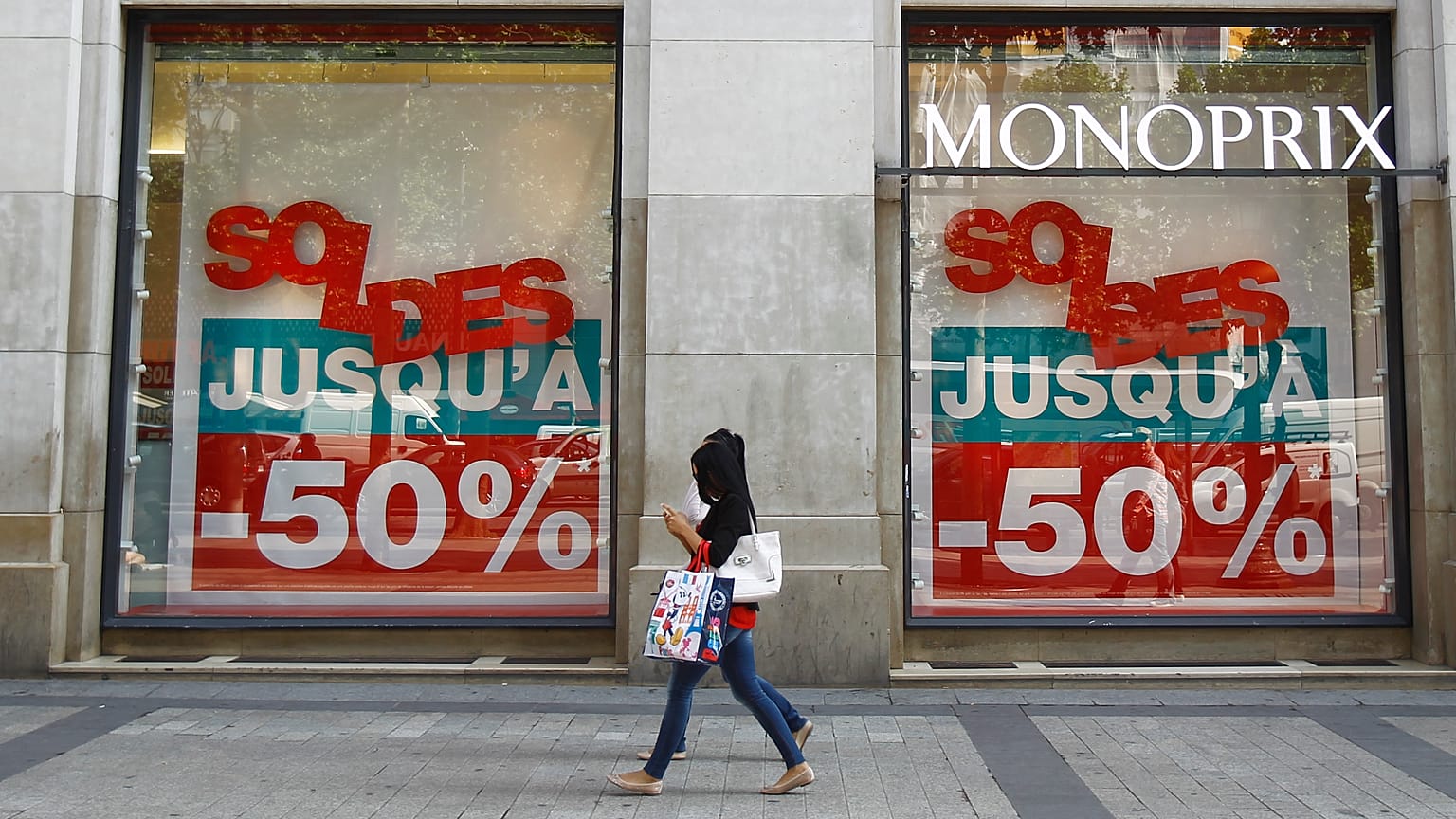French supermarkets can no longer offer discounts of more than 34% for various personal and household products. The new law aims to protect smaller companies against the might of multinationals' mega sales. But how will it work for consumers?
Mega sales for items such as shampoo, toothpaste and toilet paper are over in France. Discounts of more than 34% of products' usual prices are forbidden, which marks the end of sales such as "buy one, get one free" that often draw the attention of shoppers trying to be careful of their household spending.
 ADVERTISEMENT
ADVERTISEMENT
 ADVERTISEMENT
ADVERTISEMENT
The new law, effective since 1 March, was introduced by Frédéric Descrozaille, an MP who is part of President Emmanuel Macron's ruling party. This law has already been applied to all food items since March last year.
Why put a cap on supermarket discounts?
French legislators argued that Small and Medium-sized Enterprises (SME) cannot compete with multinational companies when it comes to reducing their margins.
When retailers negotiate with the manufacturers and the producers they work with, the retailers will try to get the lowest prices possible, in order to stock similar items to their competitors but at a lower price, with the aim of attracting more customers.
A similar logic applies to discounts, with retailers pushing for appealing sales. But Carrefour, Lidl and all other supermarkets are not the ones having to cut down on their margins with super sales: farmers and manufacturers bear the cost of the discounts.
SME and small-scale producers had been complaining about the unfair competition created by the system, as they are not able to match what large corporations can offer.
Although the limit on supermarket discounts has already applied to food since March 2023, French farmers have been complaining about ways retailers have found to avoid such rules.
Some multinational retailers operating in France have indeed formed retail alliances with their European counterparts, with their trading headquarters based outside of French borders, in countries where the law is still more favourable to their wallets.
How are consumer behaviours expected to adapt?
Many have praised the recent law for encouraging price transparency, allowing customers to compare the real prices of products when they shop, instead of getting a false sense of low-priced items that only large corporations can afford to put on the shelves.
Banning big sales also means no big surprise when paying, as the price of a similar shopping trolley won't fluctuate too much from one week to another, ensuring price stability for shoppers.
But, as inflation hit hard in 2023, French consumers have increasingly turned to soft and hard-discount brands, or supermarkets such as Aldi or Action for Food items. Now that the law also applies to the personal and household departments, shoppers could once more adapt their habits and ditch classic supermarkets.
"This will impact pleasure purchases, small extras, unplanned purchases, bulk purchases, discoveries, etc," said marketing expert Eric Carabajal on LinkedIn, emphasising that many buyers tend to fill their trolleys with goods offered on available discounts.
Many might turn to online shopping, especially for necessary items that can represent a large share of the household's budget and that can be bought in bulk, such as nappies or razor blades.
In January, French statistical office IFOP published a study on the sales of personal hygiene and home grooming products, in which 50% of respondents said that the current state of the economy forces them to limit and reduce the amount they buy - up from 34% of respondents the year before.
The first items French customers tend to cut back on are makeup products: 40% of respondents said they had stopped or reduced the purchase of such products because of financial reasons. Next came hair dyes (33%) and moisturisers (30%).
Some respondents also said they had to cut back on more essential hygiene items, such as toothpaste (10%), menstrual protections (10%) and toilet paper (9%) - products that cannot be discounted below 34% of their normal price anymore.
Over the next few months, retail analysts will look closely at how consumer behaviours are adapting to this new law, especially since inflation is easing in France and the EU, prompting a certain sense of normalcy to influence household spending habits.

















